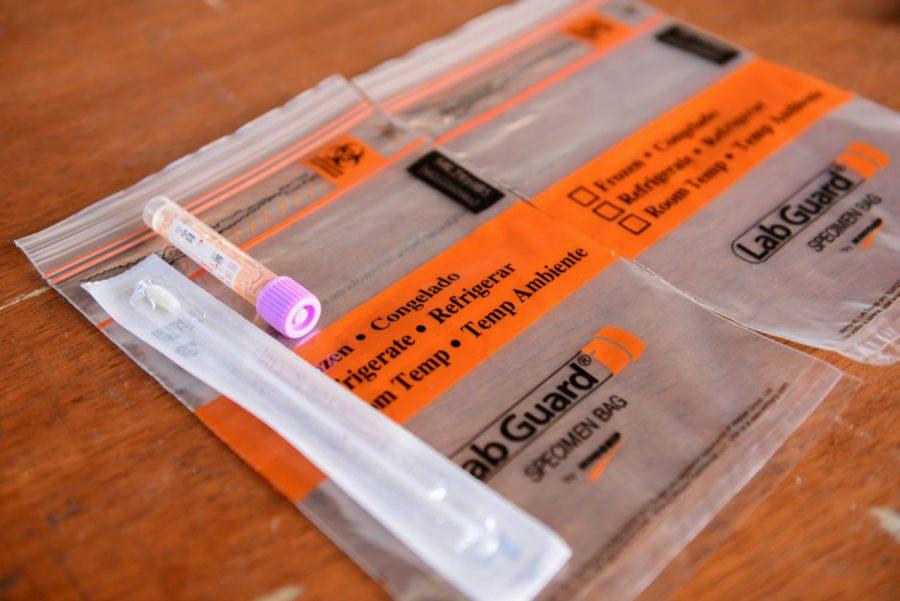Pitt adds 15 COVID-19 cases since Tuesday
January 29, 2021
Pitt added 15 new COVID-19 cases, composed of 13 students and two employees, between Tuesday and Thursday, with 29 students currently in isolation. The University’s previous case report, covering last Friday to Monday, included 22 cases.
This is the spring semester’s fourth case report and is released on the day on-campus students began moving into their dorms. The remainder of on-campus students are set to arrive next Sunday, Wednesday and Friday. Pitt’s COVID-19 Medical Response Office released shelter-in-place guidance and testing requirements for students. Faculty and staff also have access to mail-in tests if they meet certain criteria.
Allegheny County Health Department and state health officials have continued to report high case numbers. According to hospital data compiled by The New York Times, around 85% of ICU beds in the Pittsburgh area are currently occupied, compared with 80% statewide and 79% nationally. UPMC Shadyside is at 90% capacity and has 22 available ICU beds.
The CMRO said in a Friday evening email that the case count and isolation capacity are “holding steady,” but because case numbers in the surrounding region are decreasing yet still relatively high, people should remain “vigilant.”
The CMRO added that the positivity rate among submitted at-home test kits from Quest Diagnostics that students have ordered so far is 1.28%. It said most people who tested positive in these cases report being asymptomatic, which “underscores the importance of participating in surveillance testing when invited to do so.”
The University has had 915 students and 171 employees test positive since June 26, with 886 students and 161 employees recovered thus far.
There are 29 students currently isolated at home or in Pitt’s isolation housing, which is reserved for those who have either a confirmed or suspected COVID-19 infection. Pitt has a total of about 300 isolation beds.
Pitt partnered with the county health department to provide 800 patient-facing students and health care personnel with the Moderna COVID-19 vaccine yesterday and today at a vaccination clinic at the Petersen Events Center. The personnel — who meet Pennsylvania’s Group 1A health care personnel designation — came from Pitt, Chatham University, Community College of Allegheny County, Duquesne University, La Roche University and Pittsburgh Technical College. Students who interact with patients were also included in this group.
The CMRO sent a survey to the Pitt community on Thursday to gauge vaccine needs, and asked that Pitt affiliates complete it within 48 hours. Based on the survey questions and state guidelines, Pitt will prioritize vaccines for patient-facing health care personnel as well as those with high-risk conditions. Pitt is currently partnering with UPMC to vaccinate Group 1A Pitt personnel.
“Everyone at Pitt who wants to be vaccinated will get vaccinated in due course,” the CMRO said. “The safety of our community — and every member in it — remains a top priority.”
Pitt is awaiting approval from the state to be an independent vaccine provider, which would allow the CMRO to provide its own guidelines about what students, faculty and staff are next in line to receive a vaccine based on CDC and ACHD guidance. Chancellor Patrick Gallagher said in a Tuesday interview with The Pitt News that if Pitt gets certified as an independent vaccine provider, then the University would like to open several vaccination sites for students and employees, but also potentially serve as an open regional vaccination center for the Pittsburgh area.
He also said in the interview that the University’s Emergency Operations Center and COVID-19 advisers meet frequently with “counterpart” groups at various institutions and levels of government — from chief medical officers at local health care companies to local, Allegheny County and state government officials to leaders at other Pittsburgh colleges and universities. He said officials were “supportive” of Pitt’s planning, and said the University is “being viewed as a model for how to manage risk in an ongoing way.”
Pitt has implemented a systematic, random testing strategy, where it has said it will test several hundred students each week on Mondays and Wednesdays inside Posvar Hall. Out of 162 students without COVID-19 symptoms randomly tested on Monday, none were positive, decreasing Pitt’s total spring prevalence rate from 0.75% to 0.47%. The Student Health Center also now has the capacity to test 300 symptomatic students per day.
The University also implemented a variety of new policies due to the pandemic during the spring semester, though some community members questioned whether the safeguards are sufficient. Students will move into dorms in four cohorts, beginning in late January and continuing into early February. They need to have a negative COVID-19 test before moving back to Pittsburgh.
Additionally, students are encouraged to shelter in place at least seven days before moving in. Once on campus, students are required to shelter in place again for at least 10 days or until the CMRO announces that it’s safe to move about campus. Students may attend classes during this time. Pitt has also planned testing of students to monitor the virus’s spread, required students, faculty and staff to complete COVID-19 training and imposed strict penalties for violations of health guidelines.
Kenyon Bonner, the vice provost and dean of students, said student organizations who host a party or event can face suspension, and students hosting large parties can be suspended. Students living on campus who attend large parties can have their housing suspended for the semester, and students living off campus can be switched to persona non grata status, preventing them from entering University buildings or property.



